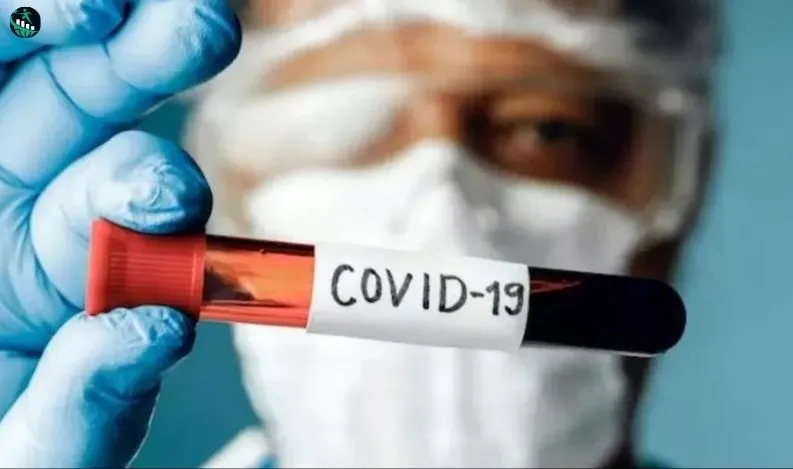
AstraZeneca's Admission of Covishield Risk May Spark Legal Battles in India
AstraZeneca has legally acknowledged that its COVID-19 vaccine, marketed globally as Covishield and Vaxzevria, could trigger a rare health condition. This admission, made in court documents, highlights Thrombosis with Thrombocytopenia Syndrome (TTS), a condition involving blood clots and low platelet counts. This revelation has significant implications for India's vaccination efforts and may lead to potential legal battles both locally and globally.
AstraZeneca's Acknowledgement of TTS
AstraZeneca's legal acknowledgment confirms that the vaccine can induce TTS, a condition characterized by blood clots and a decreased platelet count. This acknowledgment comes amid a class action lawsuit in the UK, where AstraZeneca faces allegations of causing fatalities and critical injuries due to the vaccine. This has stirred global concerns, especially in India.
Covishield's Role in India's Vaccination Drive
Covishield, produced by the Serum Institute of India (SII) under a licensing agreement with AstraZeneca, has been fundamental to India's COVID-19 response. Over 174 crore doses were administered by October 2023, making Covishield a cornerstone of India's vaccination drive. The SII website lists potential side effects of the vaccine, from common symptoms like fatigue and nausea to rarer instances of major blood clotting with a low platelet count, affecting fewer than 1 in 100,000 individuals.
Implications for India
Public Trust and Health Concerns
AstraZeneca's acknowledgment of TTS and its potential for class action lawsuits could undermine India's vaccination drive. Public trust in Covishield may wane, leading to hesitancy and skepticism. This is particularly concerning in India, where Covishield was approved for emergency use without full clinical trials. Any news of side effects, even if rare, could damage public confidence in the vaccine.
Legal Action and Regulatory Scrutiny
Alpana Srivastava, Partner at Desai & Diwanji, raises concerns about potential legal action against AstraZeneca in India. She cites the Consumer Protection Act, 2019, as a potential recourse for affected individuals, leading to compensation claims for medical expenses and suffering. Additionally, India's drug regulator might face legal challenges for approving Covishield without full trials, especially given recent TTS concerns. This could also lead to Public Interest Litigations (PILs) questioning Covishield's approval.
Global and National Implications
Medico-legal experts warn that a favorable outcome for the claimants in the UK lawsuit could trigger similar lawsuits worldwide, impacting vaccination drives globally. This could instill hesitancy among the public, particularly in countries like India, where Covishield played a significant role in the vaccination campaign. Despite these concerns, multiple regulatory authorities maintain that the benefits of the AstraZeneca vaccine outweigh its risks.
Understanding TTS
TTS, or Vaccine-induced immune thrombotic thrombocytopenia (VITT), involves blood clots and a reduced platelet count. This condition impedes blood flow and can lead to serious health issues.
Symptoms and Diagnosis
TTS symptoms typically appear 4 to 42 days after vaccination and include:
- Intense headaches
- Abdominal pain
- Back pain
- Nausea and vomiting
- Vision changes
- Shortness of breath
- Leg pain, swelling, or bleeding
Dr. Tushar Tayal, Lead Consultant at CK Birla Hospital, highlights the high incidence of TTS at 10 per million vaccinated individuals, emphasizing the need for immediate medical attention due to its high mortality rate. Blood tests can reveal low platelet counts and elevated d-dimer levels, indicative of blood clot formation.
Legal and Medical Repercussions
AstraZeneca's admission has significant legal and medical implications. The lawsuit in the UK, initiated by Jamie Scott, who sustained permanent brain damage post-vaccination, could result in substantial compensation payouts if AstraZeneca accepts claims of vaccine-induced injuries or fatalities. Despite this, AstraZeneca challenges allegations of universal vaccine defects or overstated effectiveness.
Conclusion
AstraZeneca's acknowledgment of TTS as a potential side effect raises global concerns and highlights the need for transparent communication, legal accountability, and continued monitoring. In India, the development could lead to legal battles, regulatory scrutiny, and a potential loss of public trust in Covishield. This underscores the importance of balancing vaccine benefits against risks and ensuring clear communication to maintain public confidence in the vaccination campaign.
Also Read:-



Recent Comments: